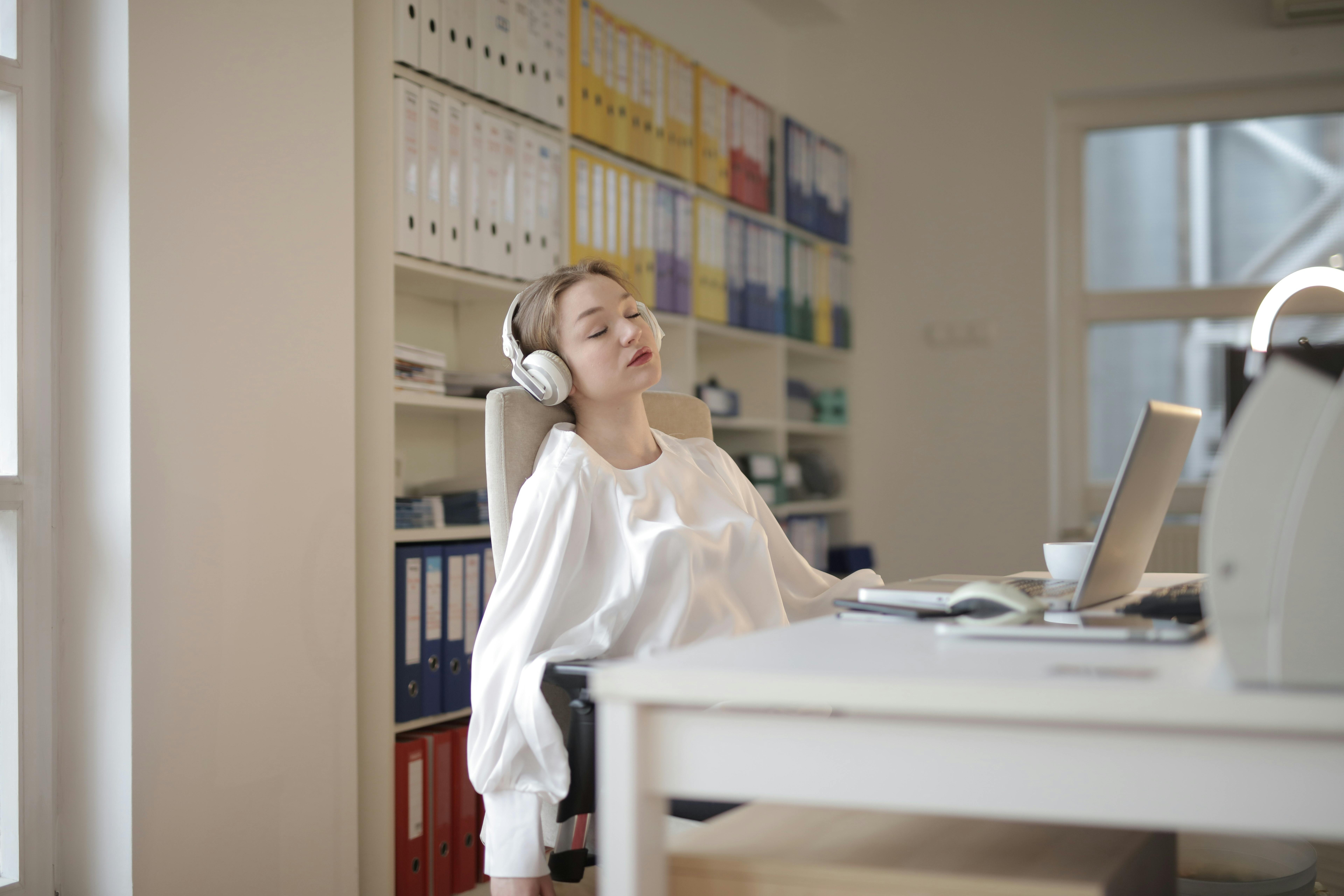
I. Introduction
Sleep, that elusive sanctuary of restoration, is often the first casualty in our bustling lives. In a world that glorifies the hustle, where late-night emails and endless scrolling bleed into the dawn, we find ourselves tossing and turning, yearning for the sweet embrace of slumber. According to the Centers for Disease Control and Prevention (CDC), about one-third of adults report not getting enough sleep, a statistic that underscores the gravity of our collective insomnia. The toll of inadequate rest extends beyond groggy mornings; it seeps into our emotional well-being and cognitive performance, affecting everything from relationships to productivity. In this cacophony of sleeplessness, many seek refuge in an unexpected ally: music.
The relationship between music and sleep quality is a fascinating one, marked by centuries of cultural tradition and modern scientific inquiry. Research has shown that certain music genres can significantly enhance sleep quality, acting as both a lullaby and a tranquilizer for the mind. This article seeks to illuminate the surprising music genres that can guide you gently into the night, transforming your bedtime routine into a cherished ritual of relaxation. Whether you’re a classical aficionado or a jazz enthusiast, there’s a melody waiting to cradle you into a restful night.
II. The Science of Sleep
To appreciate how music can aid our journey to the land of nod, it’s essential to understand the intricate architecture of sleep itself. Our sleep is divided into cycles, primarily consisting of Rapid Eye Movement (REM) and Non-Rapid Eye Movement (NREM) stages. Each cycle lasts about 90 minutes, and a full night typically comprises multiple cycles. NREM sleep, especially the deep stages, is crucial for physical restoration and memory consolidation, while REM sleep plays a significant role in emotional regulation and creativity. Disruptions in these cycles can lead to diminished cognitive function and heightened stress levels, making the quest for quality sleep paramount.
However, several factors influence sleep quality—ranging from lifestyle choices, such as caffeine intake and screen time, to environmental elements like light and noise. One often-overlooked factor is auditory stimuli. Music, as a form of auditory input, can either hinder or enhance sleep quality. The soothing sounds of a gentle melody can lower heart rates and promote relaxation, creating a conducive environment for sleep. Studies indicate that calming music can decrease the time it takes to fall asleep while increasing overall sleep satisfaction. The interplay of sound and sleep is a symbiotic relationship that deserves exploration.

III. How Music Influences Sleep
The psychological effects of music on relaxation are profound. Music has a unique ability to evoke emotions, transport us to different places, and even alter our perceptions of time. When it comes to sleep, researchers have found that listening to calming music can trigger the release of neurotransmitters like dopamine, which promotes feelings of pleasure and relaxation. A study published in the Journal of Advanced Nursing found that patients who listened to music before bedtime experienced lower anxiety levels and improved sleep quality compared to those who did not. This psychological aspect of music is a powerful tool for those struggling with the mental chatter that often accompanies sleeplessness.
On the physiological front, music affects our heart rate and brain waves, both of which are critical to achieving restful sleep. Slow, rhythmic music can help synchronize brain waves to a more relaxed state, mirroring the natural rhythms of sleep. For instance, research from the University of California, Los Angeles, demonstrated that participants who listened to music while sleeping exhibited slower heart rates and more stable breathing patterns. When compared to other sleep aids, such as medication, music presents a far less invasive option. While pharmaceuticals can lead to dependency and unwanted side effects, music offers a natural and enjoyable alternative that can seamlessly integrate into our nightly routines.
IV. The Genres that Promote Restful Sleep
Among the myriad of musical styles, certain genres have emerged as champions in the quest for better sleep. Classical music, often heralded for its calming effects, has historical roots in relaxation practices. Composers like Johann Sebastian Bach and Claude Debussy created compositions that resonate with tranquility. A comprehensive study conducted by the University of Kent found that participants listening to classical music before bed experienced significantly improved sleep quality. The gentle melodies and harmonies of pieces like “Clair de Lune” or Bach’s “Air on a G String” can soothe the restless mind, making them perfect companions for a good night’s rest.

Ambient music, characterized by its ethereal soundscapes and lack of a distinct rhythmic structure, also deserves a spotlight. This genre creates an auditory environment that can lower stress levels and promote relaxation. Artists like Brian Eno and Moby have crafted albums specifically designed to foster tranquility. An analysis published in the journal Sleep Medicine Reviews found that ambient music can enhance sleep quality and reduce anxiety levels. The soothing nature of ambient tracks helps to mask disruptive noises, creating a serene backdrop for sleep.
Nature sounds, such as rain, ocean waves, or rustling leaves, have a unique ability to ground us in the present moment. Not only do they evoke a sense of peace, but they also resonate with our innate connection to the natural world. Research conducted by the University of California, Irvine, indicates that exposure to natural sounds can significantly reduce stress and improve overall well-being. Incorporating nature sounds into your sleep routine can be as simple as streaming a nature sounds playlist or using a white noise machine designed to mimic the calming effects of the outdoors.
Jazz, with its improvisational flair and smooth melodies, can also serve as a delightful sleep aid. The genre often incorporates soft instrumentation and a laid-back tempo, which can encourage relaxation. Recommended tracks include “Blue in Green” by Miles Davis and “Misty” by Erroll Garner, both of which can provide a soothing auditory experience conducive to sleep. The improvisational nature of jazz allows for a unique listening experience each night, keeping the bedtime routine fresh and engaging.

Binaural beats, a fascinating phenomenon in the realm of sound therapy, involve playing two slightly different frequencies in each ear. This auditory trick creates the perception of a third tone, which can influence brainwave patterns. Research published in the Journal of Neurotherapy suggests that binaural beats can promote relaxation and enhance sleep quality. Incorporating binaural beats into your nighttime playlist could be an innovative way to explore the intersection of music and sleep.
V. Creating a Personalized Sleep Playlist
Curating a personalized sleep playlist is akin to crafting a bedtime story, where each track contributes to a narrative of relaxation. When selecting music, consider factors such as tempo, instrumentation, and personal preference. Tracks that feature a slow tempo (typically below 60 beats per minute) and soothing melodies are ideal for inducing relaxation. You might find that certain genres resonate more deeply with your individual preferences, leading to a more enjoyable listening experience. Experimentation is key; don’t hesitate to try out different styles and artists until you find what works best for you.
In addition to selecting the right tracks, consider the overall balance of your playlist. Mixing genres can keep your listening experience fresh while still promoting relaxation. You might start with classical pieces, transition into ambient soundscapes, sprinkle in nature sounds, and finish with soft jazz to create a dynamic auditory journey. The goal is to foster a sense of calm that will carry you gently into slumber.

VI. Additional Techniques to Enhance Sleep with Music
Timing and volume are vital considerations when using music to enhance sleep. Ideally, music should be played at a low volume, just above a whisper, allowing it to be a gentle background presence rather than a focal point. Establishing a routine can further enhance the effect; try to listen to your sleep playlist at the same time each night to signal to your body that it’s time to wind down. Pairing music with mindfulness or breathing exercises can amplify its calming effects. Techniques such as deep breathing or progressive muscle relaxation can prepare both body and mind for sleep, making the transition smoother.
The role of routine in enhancing sleep quality cannot be overstated. Creating a soothing pre-bedtime ritual that includes music can signal to your body that it’s time to rest. This might involve dimming the lights, enjoying a warm beverage, or practicing gentle stretches while listening to your favorite tracks. The more consistent your routine, the more your body will recognize these cues as a signal for sleep, ultimately leading to a more restful night.
VII. Common Misconceptions About Music and Sleep
Despite the benefits of music for sleep, several misconceptions persist. One prevalent myth is that any type of music can help you fall asleep. In reality, music with a fast tempo or jarring lyrics can be counterproductive, leading to increased heart rates and heightened alertness. It’s crucial to choose music that aligns with your relaxation goals. Another misconception is that once you find the right playlist, it will always work. Our minds and bodies are dynamic, so it’s important to remain open to change and adapt your playlist as needed.

Additionally, some believe that music can completely replace other sleep aids, such as medication or therapy. While music can significantly enhance sleep quality, it should not be viewed as a standalone solution for chronic sleep issues. Instead, it can serve as a valuable complement to other sleep hygiene practices. Understanding the limits of music’s impact is essential for setting realistic expectations and creating an effective sleep strategy.
VIII. Conclusion
As we navigate the complexities of modern life, prioritizing quality sleep becomes increasingly essential for our overall well-being. The exploration of music genres that promote restful sleep has revealed the profound impact sound can have on our nightly routines. From the soothing strains of classical music to the tranquil embrace of nature sounds, there is a wealth of auditory treasures waiting to guide us into slumber.
Embracing the magic of music in our quest for better sleep is not merely an act of self-care; it’s a commitment to our health and happiness. So, take a moment to explore the diverse soundscapes available to you, and consider crafting a personalized playlist that resonates with your unique preferences. By integrating music into your sleep hygiene practices, you can unlock the door to more restful nights and rejuvenated days ahead.
IX. Frequently Asked Questions (FAQ)
What type of music is best for falling asleep quickly?
Calming genres such as classical, ambient, and nature sounds are often best for inducing sleep. Look for tracks with a slow tempo and soothing melodies.
Can loud music negatively affect sleep quality?
Yes, loud music can disrupt sleep by increasing heart rates and alertness. It’s best to keep the volume low to foster a relaxing atmosphere.
How long should I listen to music before bed?
Listening to calming music for at least 30 minutes before bed can help signal your body that it’s time to wind down and prepare for sleep.
Are there specific playlists recommended for sleep?
Many streaming platforms offer curated playlists for sleep, featuring genres like classical, ambient, and nature sounds. Explore different options to find what resonates with you.
Can music be used in conjunction with other sleep aids?
Absolutely! Music can complement other sleep aids, such as meditation, breathing exercises, and sleep medications, to enhance overall sleep quality.








